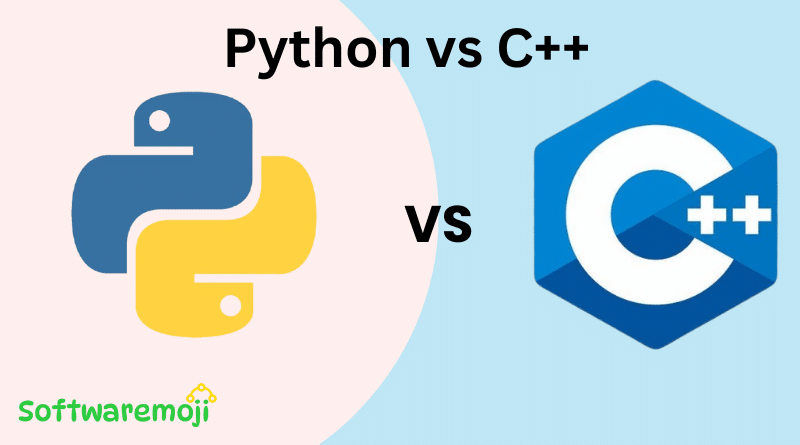
👉Python vs C++: Key Differences, Features, and Applications
Python vs C++: Choosing between Python and C++ can be challenging, especially if you’re new to programming. Both languages have unique strengths and are suited for different types of projects. Python vs C++ Let’s explore their differences, features, and real-world applications to help you make an informed decision.
👉What is C++?
C++ is a widely used general-purpose programming language. It combines high- and low-level language features, making it suitable for developing complex systems that require hardware-level coding.
Example of C++ Program:
#include<iostream>
using namespace std;
int main() {
cout << “Hello World” << endl;
return 0;
}
👉What is Python?
Python is a high-level, object-oriented programming language known for its simplicity and readability. It excels in rapid application development and offers extensive support for modules and packages, promoting code reuse and system modularity.
Example of Python Program:
print(“Hello World”)
👉Key Differences Between Python and C++
| Feature | Python | C++ |
| Garbage Collection | Supported | Not Supported |
| Code Complexity | Easier to write and maintain | Complex syntax with more rules |
| Execution Method | Interpreted | Pre-compiled |
| Prototyping | Rapid prototyping possible | Limited due to larger code size |
| Windows Installation | May face installation issues | Easy installation process |
| Readability | More English-like syntax | Complex syntax, less readable |
| Speed | Slower | Faster |
| Variable Scope | Variables accessible outside loops | Variables restricted within loops |
| Popular Usage | Google, Twitch, Telegram | Uber, Netflix, Spotify |
| Average Salary (USA) | $120,359/year | $108,809/year |
👉Features of Python
- Easy-to-learn syntax
- Ideal for data science, AI, and machine learning
- Offers extensive libraries for developers
- Supports cross-platform compatibility
- Includes automatic garbage collection
- Highly suitable for rapid application development
👉Features of C++
- Multi-paradigm language (Generic, Imperative, Object-Oriented)
- Excellent performance and memory efficiency
- Allows code reusability
- Provides better control over hardware and system resources
👉Applications of Python
- Data Science and Analysis
- Web Development using Django or Flask
- Artificial Intelligence and Machine Learning
- IoT (Internet of Things) Applications
- Automation and Scripting
👉Applications of C++
- Game Development
- System and Hardware Programming
- Embedded Systems
- High-Performance Applications
- Desktop and Server Software
👉Which Language Should You Choose?
Python vs C++
Choosing between Python and C++ depends on your project’s requirements:
- Choose Python if you need quick development, simple syntax, or data science capabilities.
- Choose C++ for performance-critical applications, system programming, or large-scale software development.
